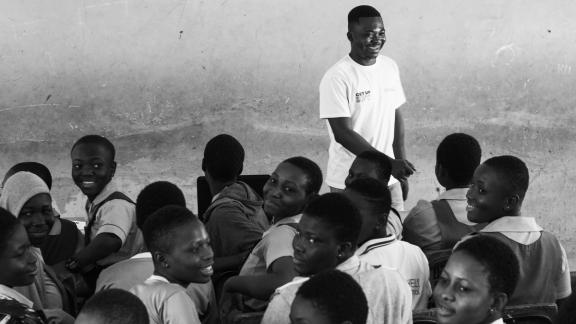Preventing HIV among adolescent girls and young women in sub Saharan Africa is critical if we are to end AIDS by 2030. We know that gender inequality increases HIV vulnerability of adolescent girls and young women and continues to be one of the least addressed bottlenecks fuelling the epidemic. A group of 179 young female champions from Malawi, Kenya and Uganda pioneered a gender equality approach to address the HIV burden in their countries. These girls used their agency, their skills to amplify their voices to address the heightened HIV vulnerability they and other girls like them face.
They were part of a pilot project called ‘Empowerment + Engagement = Equality’ designed and implemented by UN Women and the International Planned Parenthood Federation (IPPF) to build a stronger agency and leadership of the young women and adolescent girls advocates, including those living with HIV, to engage in the national assessments initiated by the All In to End Adolescent AIDS platform. Through mentoring, capacity building, social media and peer support more than 1,000 advocates were mobilized and voiced their priorities at the local, national and global foras. The girls had safe spaces to come together, either through face to face meeting or WhatsApp groups to discuss not only about HIV but broader issues that affect gender inequality. They engaged with religious leaders, teachers and other community stakeholders to change harmful gender norms.
‘In the WhatsApp group we formed as Kenya advocates, we discuss issues affecting us like education, leadership, sexual and reproductive health and rights, HIV on a daily basis. We are drawn from different parts of the country, including Mombasa, Kisumu and Nairobi. I have never been to those places, but yet I feel so connected to them because of the friends. I have made and the similarity in the issues we talk about. In the WhatsApp group, we solve problems together, counsel each other, and motivate each other. But what has been amazing is the fact I have met fellow young ladies from two other African countries: Malawi and Uganda on WhatsApp!
While WhatsApp gives us a good platform to come together as a core group of advocates our work goes beyond social media. We reach out to girls in and out of schools, talk to community leaders, teachers and parents about issues that affects HIV risks like child marriage, lack of girls education, sexual violence, HIV-related stigma.
Through this advocacy work, I have discovered things about myself that I never knew I was capable of. I am now clearer about who I am and what I want for my life. I see that I am more confident in the way I speak and how I engage with people. I was previously a shy person who was fearful of talking to many people, but today, I am a confident young woman who is able to speak in public.
Some of the most fulfilling work I have done as part of this project is support other girls like me to feel empowered and be in control of their lives. I share my personal experience and encourage girls living with HIV to believe that they too can walk with their heads held high and a smile on their face just like me ‘.
Divina Kemunto,Kisii County, Kenya
The young advocates mobilized over 1,000 girls and young women across the three countries, who reached out and made a real difference in the lives of thousands of other girls, including those living with HIV, by engaging with them, sharing information about HIV and the risk factors, mentoring and counselling them. They engaged with parents, teachers, community leaders, religious leaders, government stakeholders to amplify the risk factors that increase the girls’ vulnerability to HIV and advocate to address these at community and national level. For example, in Malawi the young advocates participated in a discussion with the first lady of Malawi, Her Excellency Dr. Gertrude Mutharik to share their concerns on HIV related stigma especially in school and health care settings for adolescents and young people, bottlenecks of girls continuing education, sexual and gender abased violence and child marriage. She committed to champion the causes of these young advocates, especially on addressing issues of gender based violence. These opportunities to engage at the high level panels increase the visibility of the HIV risks for young women and adolescent girls and the importance of tackling them if we are to end AIDS by 2030. The advocates continued to take their causes to global platforms. At the International AIDS conference in Durban, South Africa, the advocates highlighted the importance of recognising and addressing the critical linkages between gender-based violence and HIV.
An empowered girl will reduce HIV risks because she will say no to early marriage; she can complete her education and have better economic prospects, she can negotiate for safe sex and prevent early pregnancies, she will know what to do if faced with sexual violence. An enabling environment, with no discriminatory laws and policies; and health systems and workers that respect young women and their access to services and rights to sexual and reproductive health; and communities that lift girls up and support their educational opportunities combined with empowered girls will contribute to ending AIDS. And when empowered girls have the skills to meaningfully engage with decision makers, policy makers and community stakeholders in an enabling environment, they will be powerful negotiators. Thus ensuring they are not left out when resources are allocated and strategies are developed to change the future of adolescent girls and young women… thereby paving the road to HIV prevention!
when
Subject
HIV and STIs








